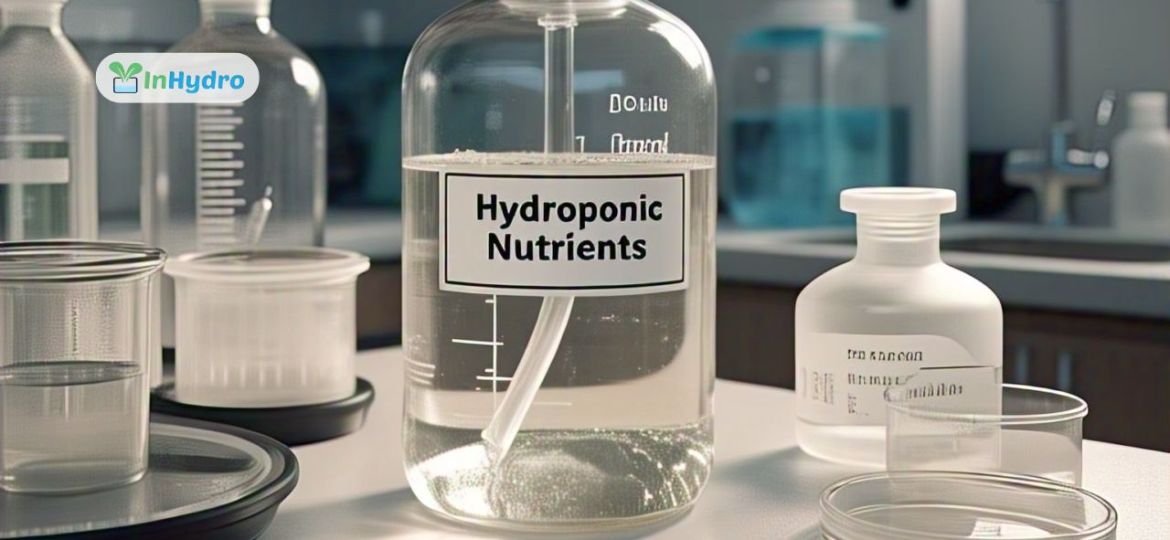
DIY Hydroponic Nutrients: Can You Make Your Own or Buy Ready-Made?
Nutrient solutions are the backbone of any hydroponic farming system. Unlike soil-based agriculture, hydroponic plants rely entirely on water-soluble nutrients to grow. This raises an important question for hydroponic growers: Should you buy pre-made nutrient solutions or mix your own?
Both options have their benefits and challenges. Let’s explore DIY hydroponic nutrients vs. commercial nutrient solutions, so you can decide which is the best fit for your farming setup.
Understanding Hydroponic Nutrients
Plants require essential macronutrients and micronutrients for proper growth. In hydroponics, these nutrients are dissolved in water to form a balanced nutrient solution.
Macronutrients (Primary Nutrients):
- Nitrogen (N) – Promotes leaf and stem growth.
- Phosphorus (P) – Essential for root development and flowering.
- Potassium (K) – Strengthens plant structure and improves resistance to disease.
Secondary Macronutrients:
- Calcium (Ca) – Supports cell wall structure.
- Magnesium (Mg) – Essential for photosynthesis (a component of chlorophyll).
- Sulfur (S) – Involved in protein formation.
Micronutrients (Trace Elements):
- Iron (Fe), Zinc (Zn), Copper (Cu), Manganese (Mn), Boron (B), Molybdenum (Mo) – Required in small amounts but essential for plant health.
A well-balanced hydroponic nutrient mix should provide all these elements in the correct ratios for optimal plant growth.
Buying Commercial Hydroponic Nutrients
Many hydroponic growers prefer ready-made nutrient solutions because they are pre-mixed, easy to use, and scientifically formulated.
Advantages of Buying Commercial Nutrients:
- Convenience – No need for complex calculations or measuring multiple ingredients.
- Consistent Results – Formulated to provide balanced nutrition for specific plant types.
- pH Stability – Most commercial solutions are designed to maintain proper pH levels.
- Prevention of Deficiencies – Contains precise amounts of macro and micronutrients.
Disadvantages of Buying Commercial Nutrients:
- Costly Over Time – Pre-made solutions can be expensive for large-scale farms.
- Limited Customization – Cannot adjust individual nutrient levels for specific crop needs.
Popular Ready-Made Hydroponic Nutrient Brands:
- General Hydroponics Flora Series
- Advanced Nutrients pH Perfect
- FoxFarm Hydroponic Formula
- Masterblend 4-18-38
If you are a beginner or growing on a small scale, commercial nutrients offer a simple and effective solution.
Making Your Own DIY Hydroponic Nutrients
Advanced growers and commercial farmers often prefer to mix their own nutrient solutions to save costs and tailor formulations to specific crops.
Ingredients for DIY Hydroponic Nutrients:
To make a basic hydroponic nutrient solution, you need:
- Calcium Nitrate (Ca(NO₃)₂) – Provides calcium and nitrogen.
- Potassium Nitrate (KNO₃) – Supplies potassium and nitrogen.
- Monopotassium Phosphate (KH₂PO₄) – A source of phosphorus and potassium.
- Magnesium Sulfate (MgSO₄) (Epsom Salt) – Provides magnesium and sulfur.
- Micronutrient Mix – A pre-made blend of iron, zinc, manganese, copper, boron, and molybdenum.
Steps to Mix a DIY Hydroponic Nutrient Solution:
- Fill a container with water (preferably RO water to avoid unwanted minerals).
- Dissolve macronutrients first, stirring thoroughly after each addition.
- Add micronutrients carefully (they are needed in small quantities).
- Adjust the pH level to the optimal range (5.5 – 6.5 for most plants).
Tip: Always mix calcium nitrate separately before combining with phosphates to prevent precipitation issues.
Advantages of DIY Nutrients:
Cost-Effective – Significantly cheaper than commercial solutions for large-scale farms.
Customizable – Adjust nutrient ratios for different crops and growth stages.
Control Over Ingredients – Avoid unnecessary additives or synthetic stabilizers.
Disadvantages of DIY Nutrients:
- Requires Chemistry Knowledge – Incorrect formulation can cause nutrient imbalances.
- Risk of Deficiencies – If not mixed properly, plants may lack essential nutrients.
- More Time & Effort – Regular adjustments are needed to maintain optimal pH and EC levels.
DIY nutrients are best for experienced growers who understand nutrient management and hydroponic chemistry.
Which Option is Best for You?
Buy Ready-Made Nutrients If You:
- Are a beginner and want a simple, effective solution.
- Prefer consistency and convenience over customization.
- Run a small-scale hydroponic system and don’t mind the extra cost.
Make DIY Nutrients If You:
Operate a large-scale hydroponic farm and need a cost-effective solution.
Want to customize nutrient concentrations for specific crops.
Have experience in mixing chemicals and balancing pH levels.
Final Thoughts:
Both DIY and commercial hydroponic nutrients have their place in modern hydroponic farming. While pre-mixed solutions offer ease of use, homemade nutrients give greater flexibility and cost savings.
If you’re just starting, commercial nutrients are the best choice. However, as you gain experience, learning how to mix your own solutions can lead to greater efficiency and profitability in the long run.
Would you prefer ready-made convenience or custom DIY control for your hydroponic nutrients? The choice depends on your farming goals, budget, and level of expertise.

